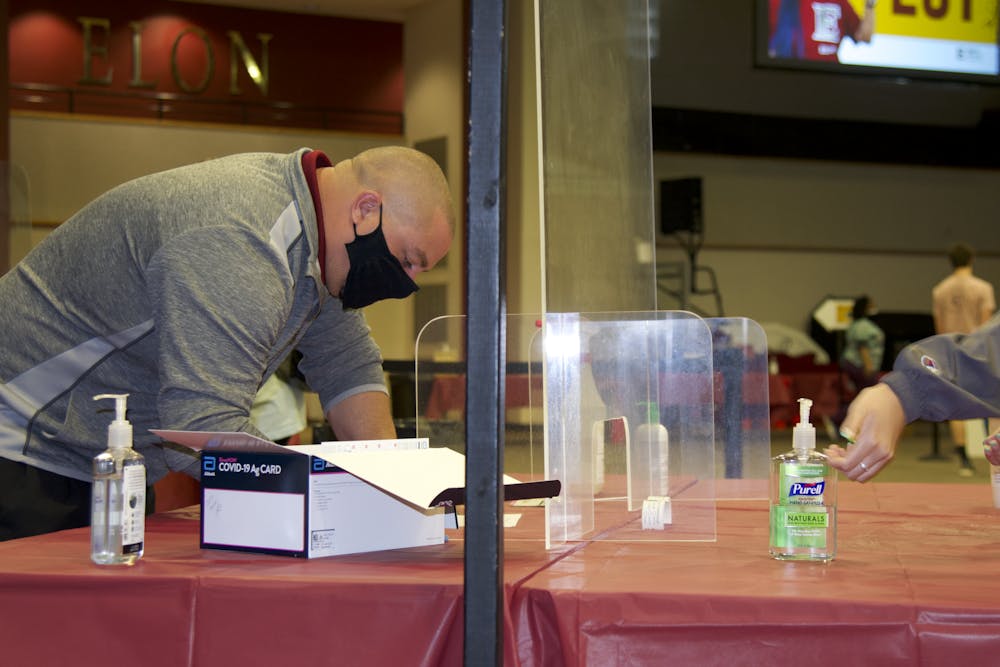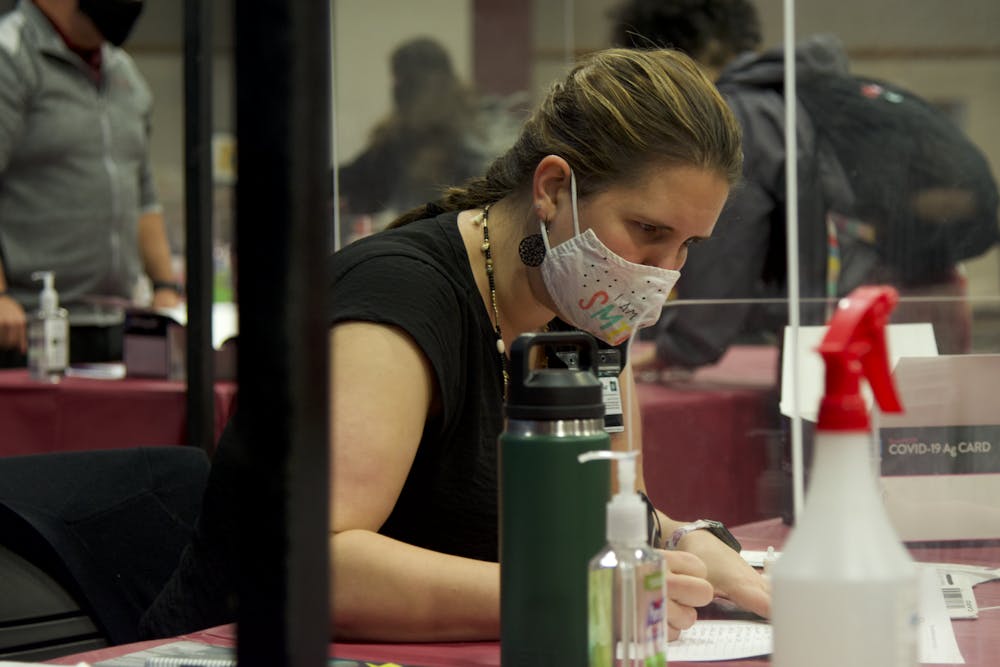Every Monday morning throughout the spring semester, Franklin sits at one of the 12 testing tables in Alumni Gym. She said she and other volunteers try to bring levity to students’ weekly testing, whether by telling jokes about the “shortage” of cotton swabs or simply asking about a student’s day.
“We’re here for hours of time, and especially early on, when students weren’t used to being tested frequently, it was kind of like Monday morning ‘why are we here,’” Franklin said. “So we just kind of make conversation or crack jokes about it.”
Franklin is one of 150 volunteers who have staffed the COVID-19 testing site in Alumni Gym throughout the 2020-21 academic year. Faculty and staff were able to sign up in January for a four-hour slot each week to administer tests or check students in.
Jeff Stein, chair of the Ready & Resilient committee, said that in addition to the volunteers at the site in Alumni Gym, there are also volunteers who test students at Elon Law in Greensboro and the School of Health Sciences, as well as faculty and staff who work the “back end” of testing, such as the Information Technology department, university communications and the print shop.
“This speaks directly to what people are like here, that they were willing to give their time and their energy to something they didn’t fully understand what it would be like, and just come in every week and volunteer in the test site,” Stein said.

T.J. Bowie, associate director of auxiliary services, said when he realized testing would be part of what kept the Elon community on campus, he knew he wanted to be part of that effort. Bowie teaches personal finance on campus, and he and the students who come in for testing enjoy seeing a familiar face.
“When students come in and they recognize me, oftentimes, they’ll come to my table, and it’s a good opportunity to have that interaction, as well as getting the test completed,” Bowie said.
With restrictions on in-person social interaction, Stein said the university realized early on that weekly testing could be one of the few times students interact with staff and faculty in person, and shared that information with volunteers.
“Most students tell me they go to the same person, every single week, which tells me that there is some sort of comfort in a friendly face and reliability of what that connection or relationship is, even though it’s just a few moments,” Stein said.
As vaccination rates increase and more students become exempt from testing, the number of volunteers needed to staff the testing sites has decreased. Stein said there will be testing over the summer and there will most likely be an arrival test for students, similar to the fall and spring semesters. Stein said the university is looking into the durability of the vaccine, as well.
“We do expect that this at least 90-day exception will be extended, because it appears that the vaccine is strong enough to last at least six months if not longer,” Stein said.
Even as the number of volunteers needed for testing decreases, Bowie said he is glad students have been so receptive to testing and continue to chat with volunteers each week.
“They’re always very appreciative that we’re doing the work,” Bowie said. “Those words mean a lot to us.”


